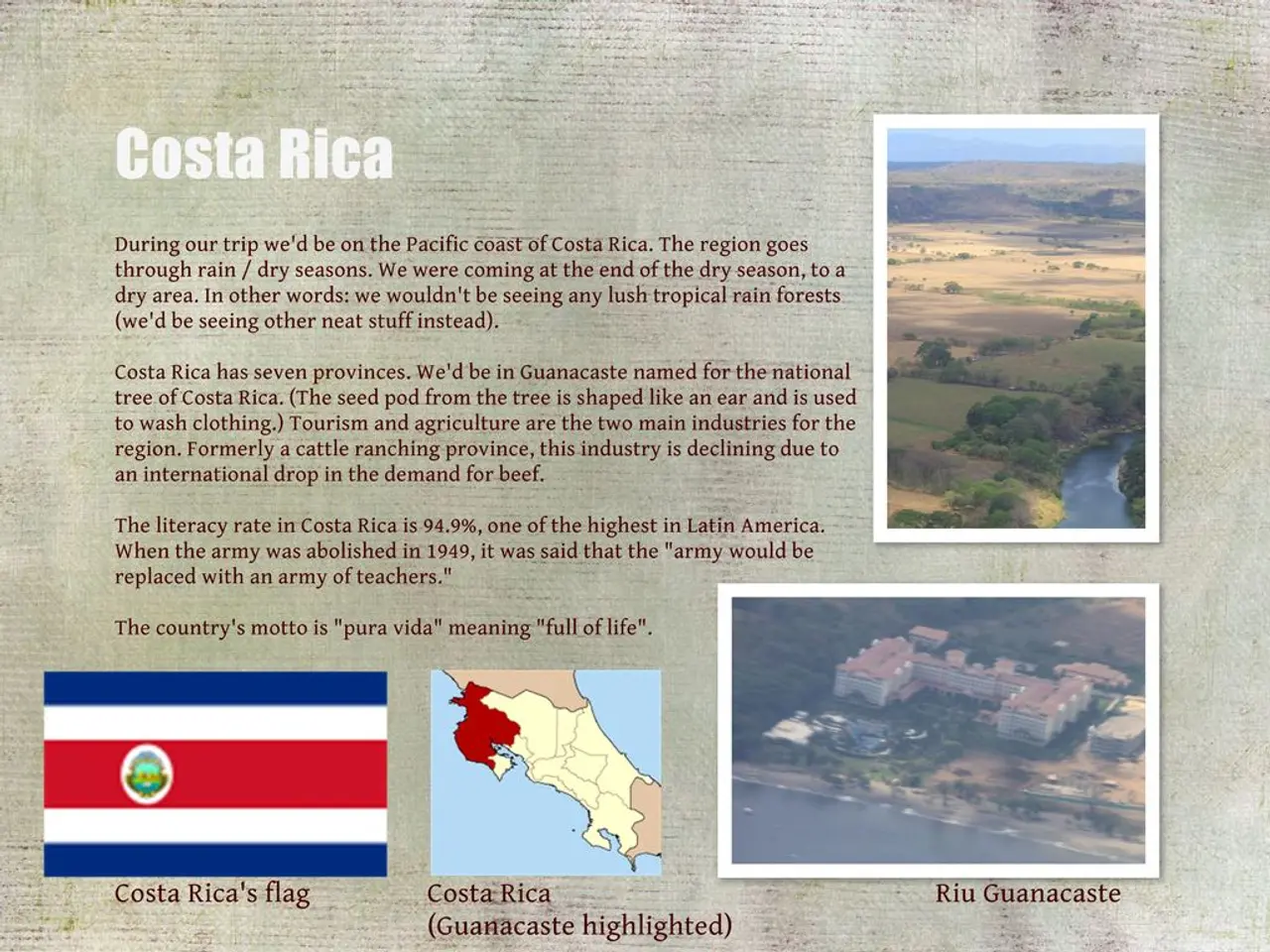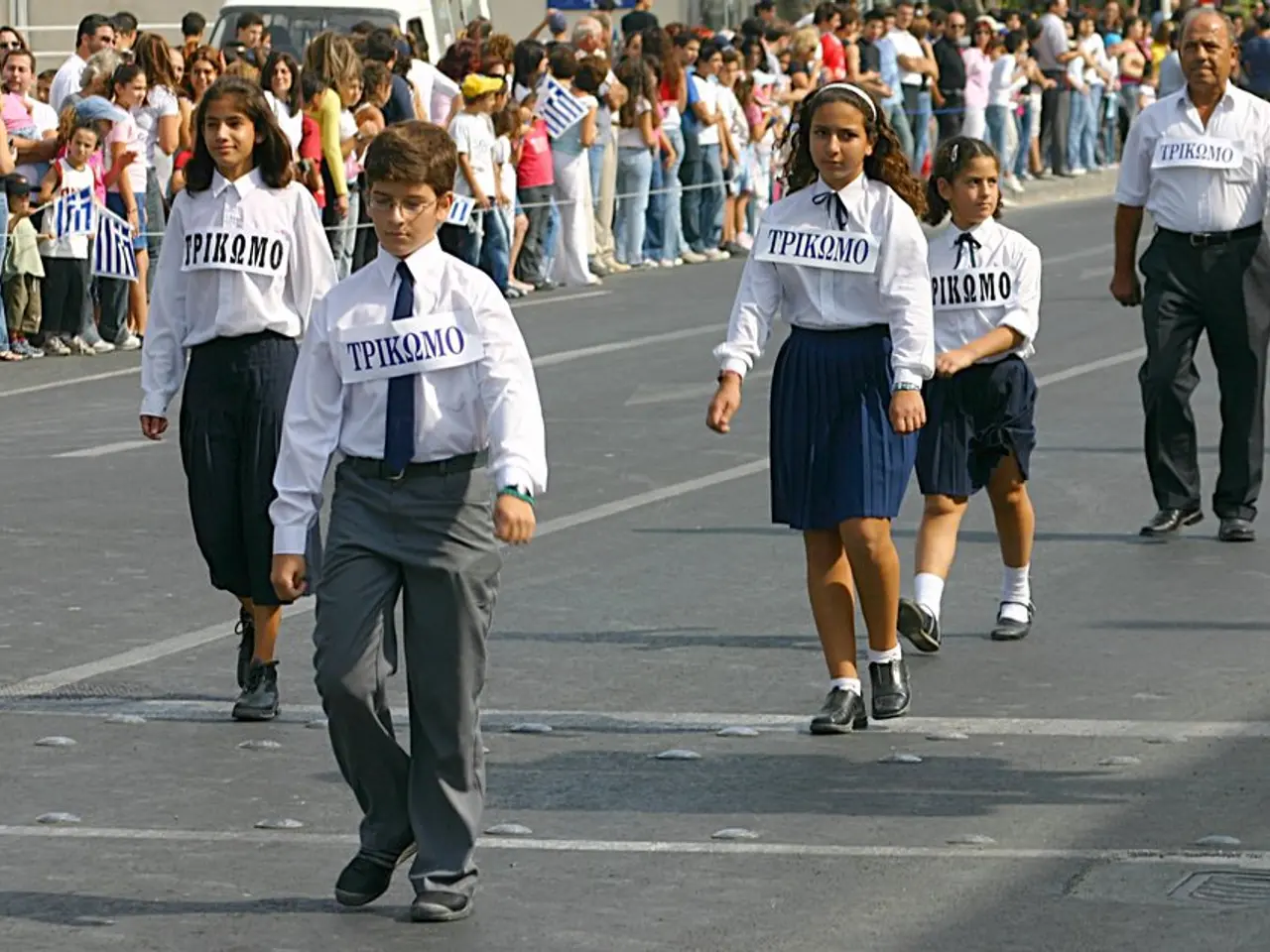"Immigrants deported by Trump were handcuffed and flown to Panama"
The abandoned gymnasium north of the capital Ciudad de Panamá has been transformed into a temporary shelter for a diverse group of individuals, commonly referred to as "retornados." These individuals, hailing from Iran, Pakistan, Eritrea, Russia, Nigeria, and other countries, entered the United States through the Mexican border at the beginning of 2025. However, between February 12 and 15, 2025, they were deported from the U.S. outside of any legal framework.
The reception center, run by the Fe y Alegría association, now provides these individuals with essential amenities such as mattresses, fans, laundry facilities, a coffee percolator, dishes, and board games. Blue mosquito nets offer some protection against the local fauna. Another building on the same location houses a group of women.
By mid-2025, under the Trump administration's intensified immigration enforcement, there has been a notable increase in deportations from the United States to various Latin American countries, including Panama. The settlement of the "retornados" in Panama has grown, with 18 still present as of July 26, 2025.
The Trump administration, upon its return to office in January 2025, prioritized strict immigration repression. A national emergency was declared at the southern U.S. border, and about $170 billion was invested in border enforcement, detention infrastructure, and deportation operations over four years.
This investment included agreements with multiple countries—Panama among them—to accept deportees, sometimes of third-country nationals, under expanding "third country deportation" policies. Panama and other cooperating nations have provided basic humanitarian aid upon arrival such as food, water, and medical care and facilitated access to asylum applications with UN assistance.
However, human rights organizations express concern about the treatment conditions for deportees in some countries. The Trump administration's policies also include enhanced interior enforcement via DHS and ICE, with large-scale operations in sanctuary cities and expanded partnerships under programs like 287(g) to increase arrests and deportations of unauthorized immigrants, including those without criminal records.
The administration also reversed protections like Temporary Protected Status (TPS) and parole programs which had previously allowed many Latin American and Caribbean migrants legal stay, thereby increasing the population subject to removal.
In summary, 2025 has seen a significant influx of deportees, including "retornados," into Panama as part of the Trump administration's broader immigration repression strategy combining large-scale deportation flights, third-country arrangements, and harsh immigration enforcement policies both at the border and in the interior of the U.S.
- The heated politics of immigration policy-and-legislation during the Trump administration led to a surge in deportations from the United States, with many ending up in Panama, which had agreed to accept deportees under expanding third-country deportation policies.
- The general news of 2025 painted a picture of intensified immigration enforcement under the Trump administration, with the administration prioritizing strict immigration repression, declaring a national emergency at the southern U.S. border, and investing heavily in border enforcement, detention infrastructure, and deportation operations, thereby resulting in a significant influx of deportees, including "retornados," into countries like Panama.







